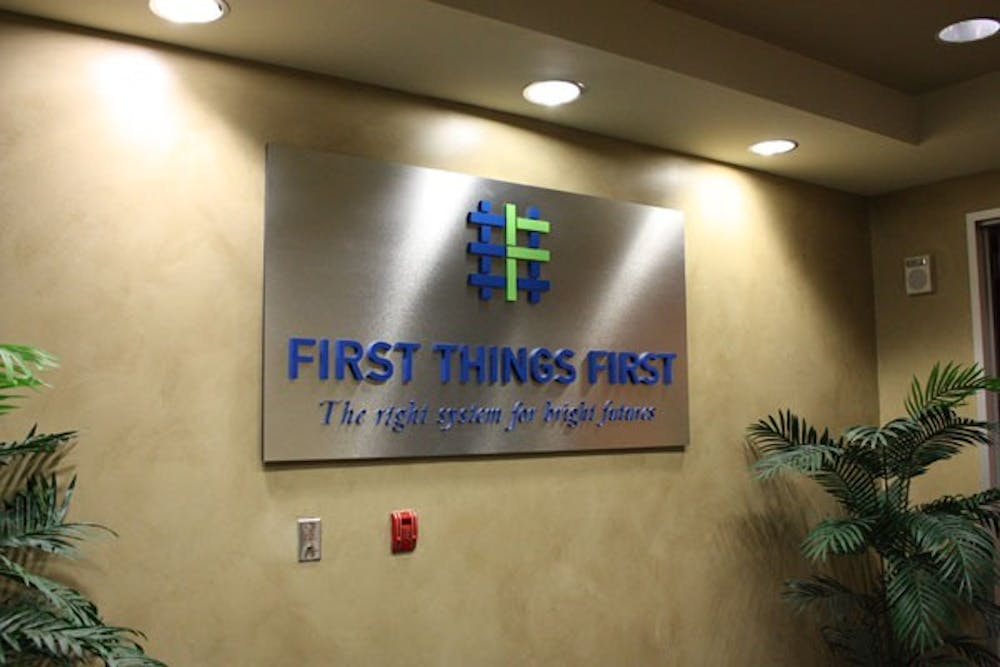The fate and funds of a state agency for early childhood development is in the hands of Arizona voters this November, and legislators say those funds are necessary to combat the budget crisis.
Since the 2006 passing of Proposition 203, First Things First has received more than $480 million from the imposed 80-cent tax increase on cigarettes. Two-thirds of those funds sit unspent — money some legislators say could be better utilized elsewhere.
However, legislators can’t just redirect those funds toward whatever means they wish. They must obtain voters’ permission.
“Basically, voters chose to create First Things First,” said Kristin Borns, senior analyst for the Morrison Institute for Public Policy. “By doing that, they generated a funding source just for that agency and passed that by ballot.”
This means that if legislators want to eliminate First Things First and transfer its funds into the general fund, the residents of Arizona have to vote on the issue.
Rhian Evans Allvin, First Things First executive director, said voters dedicated this money toward early childhood development and education because it’s an important issue.
“It is wrong for the Legislature to try and steal money that was set aside by voters,” Allvin said. “This was money that was never part of the general fund, and was not a cause of the budget crisis.”
Reps. John Kavanagh, R-Fountain Hills, and Rich Crandall, R-Mesa, both said the money from First Things First could be better applied.
“First Things First has identified a tax stream for 0-to-5-year-olds — would it be better if that stream could benefit not only them but 6-to-65-year-olds as well?” Crandall said.
The money from First Things First would be used to finance state-funded programs that are in trouble because of the budget crisis, Kavanagh said.
“We will be using the money for early childhood programs, like health care and disease screening,” he said. “We have a massive shortfall and it’s getting worse. To allow hundreds of millions of dollars to sit idly … while we’re having to cut vital services makes no sense.”
Allvin said there are misconceptions about First Things First processes and how they distribute funds.
“On one hand, we’re accused of being reckless. The other hand, we’re too slow and bureaucratic,” she said. “One, we’re thorough. We won’t stop being thorough. Two, the fund balance we have is an intended fund balance.”
Allvin said the organization is collecting money in anticipation of a declining revenue stream from the tobacco tax, which has gone down in recent years. That money will be used for long-term goals of the organization.
“To start to be able to prove that young children have different outcomes because of the investments, that’s going to take a while,” Allvin said.
Though legislators have been critical of First Things First in the past, Crandall recently said they’re “doing good work, good mission,” while Kavanagh said it was “an ambitious, beneficial program when it was introduced.”
However, both men urged voters to eliminate the program.
“There’s need-to-have and nice-to-have,” Kavanagh said. “It doesn’t make much sense to have the nice-to-haves when your needs are getting cut.”
First Things First has offered to loan the state $260 million, and then $300 million, but those offers have been declined. Allvin said she will continue to pursue an alternative solution with the Legislature.
“We acknowledge there’s a huge crisis, and that these are different times than they were,” Allvin said.
Phoenix Mayor Phil Gordon was a proponent of Proposition 203 in 2006 and said he continues to support First Things First.
“His position has not changed,” said David Leibowitz, spokesman for the mayor. “It was a good idea in its inception and it remains a good idea today.”
He understands the state is in a difficult position, but the mayor is still of the opinion that protecting children is a “worthwhile endeavor,” Leibowitz said.
“You take the money out of First Things First and put it into the general fund, you will create a set of problems … that you’ll need to solve with general fund money,” he said. “That money is earmarked for serious problems.”
The issue, however, remains to be decided by voters come November.
“The Legislature will tell you they’re going to be forced to cut education out of the general fund,” Leibowitz said. “The bottom line is that children are going to suffer either way, much like many Arizonans are suffering.”
Reach the reporter at joseph.schmidt@asu.edu





